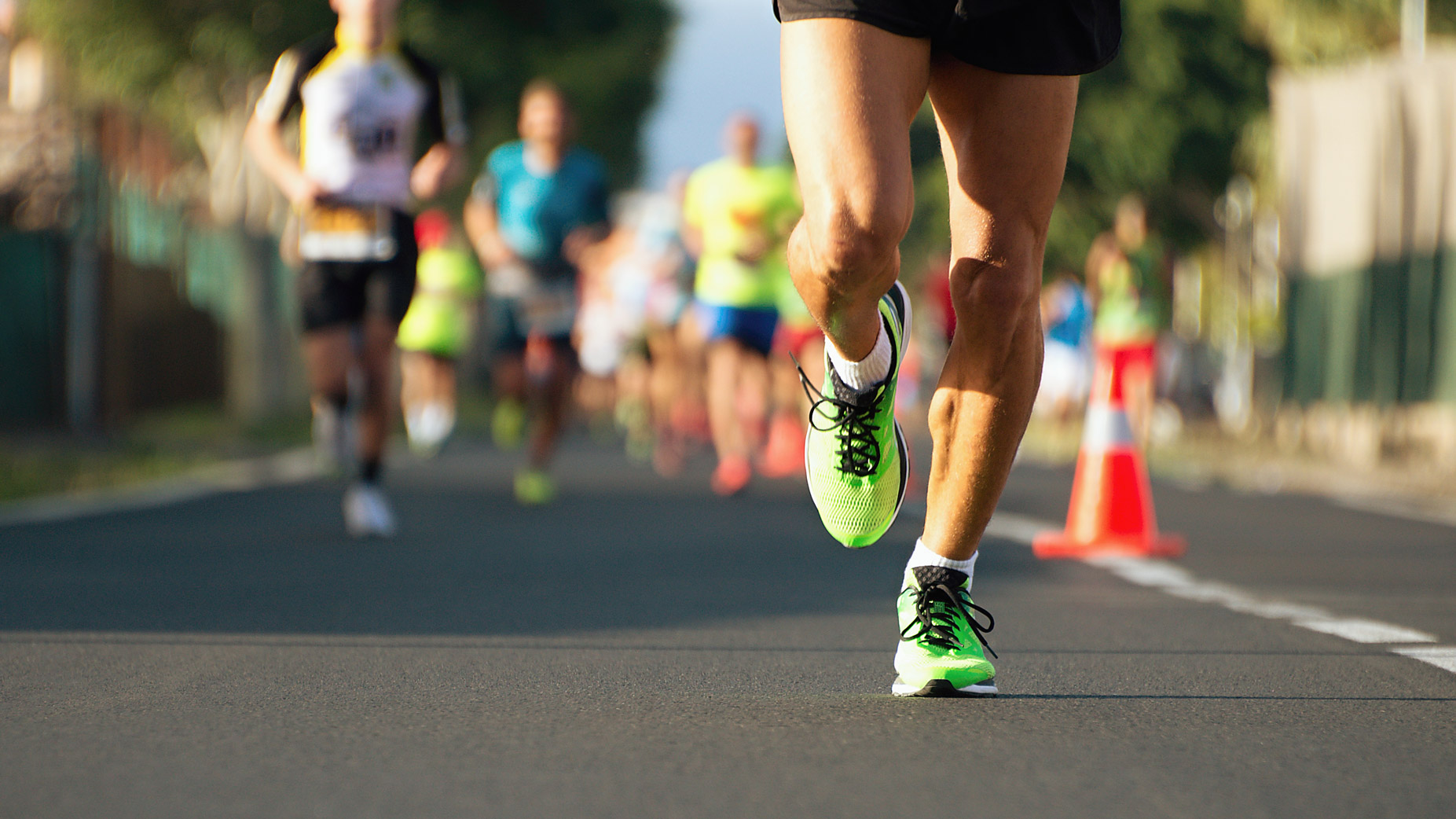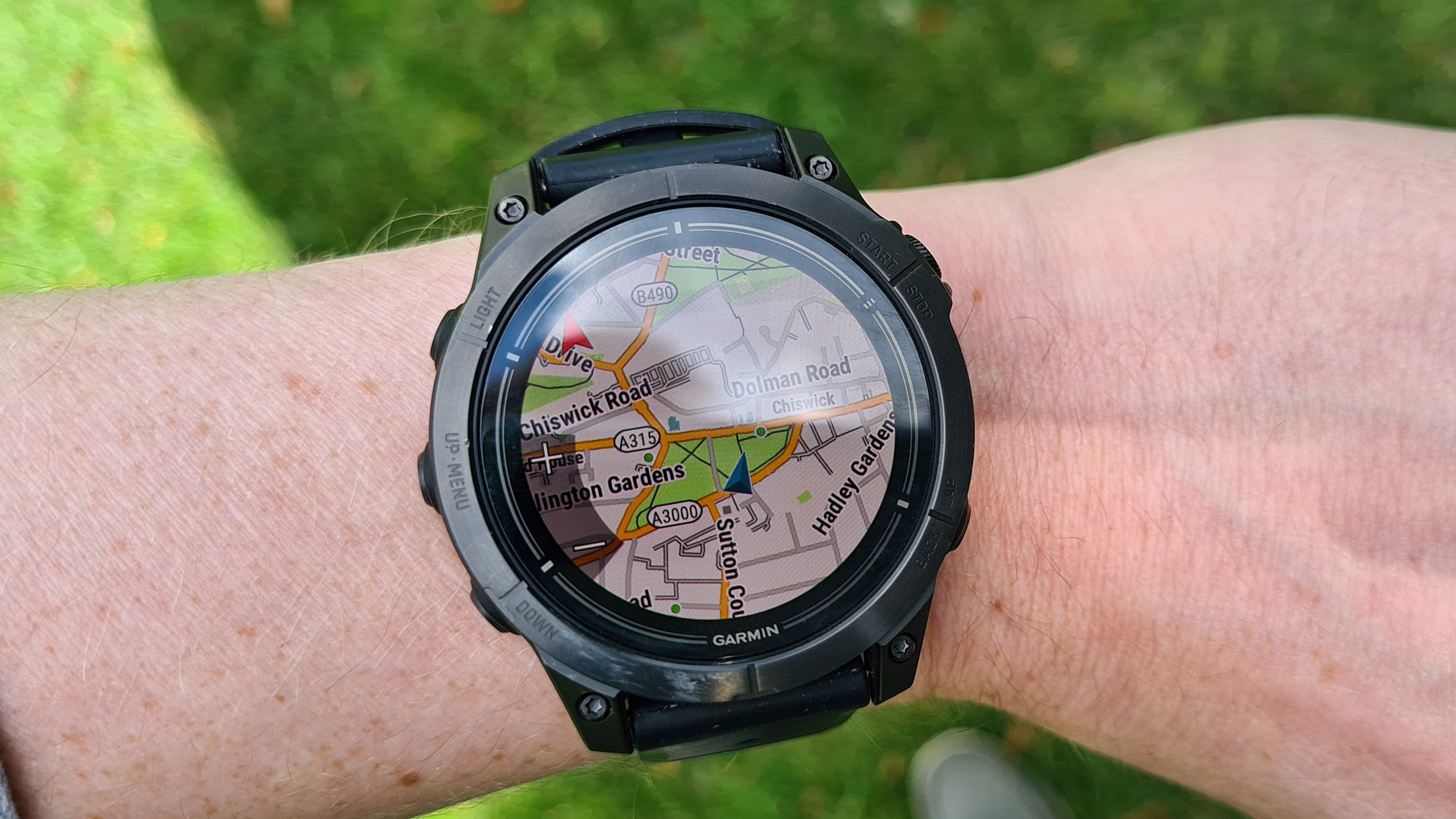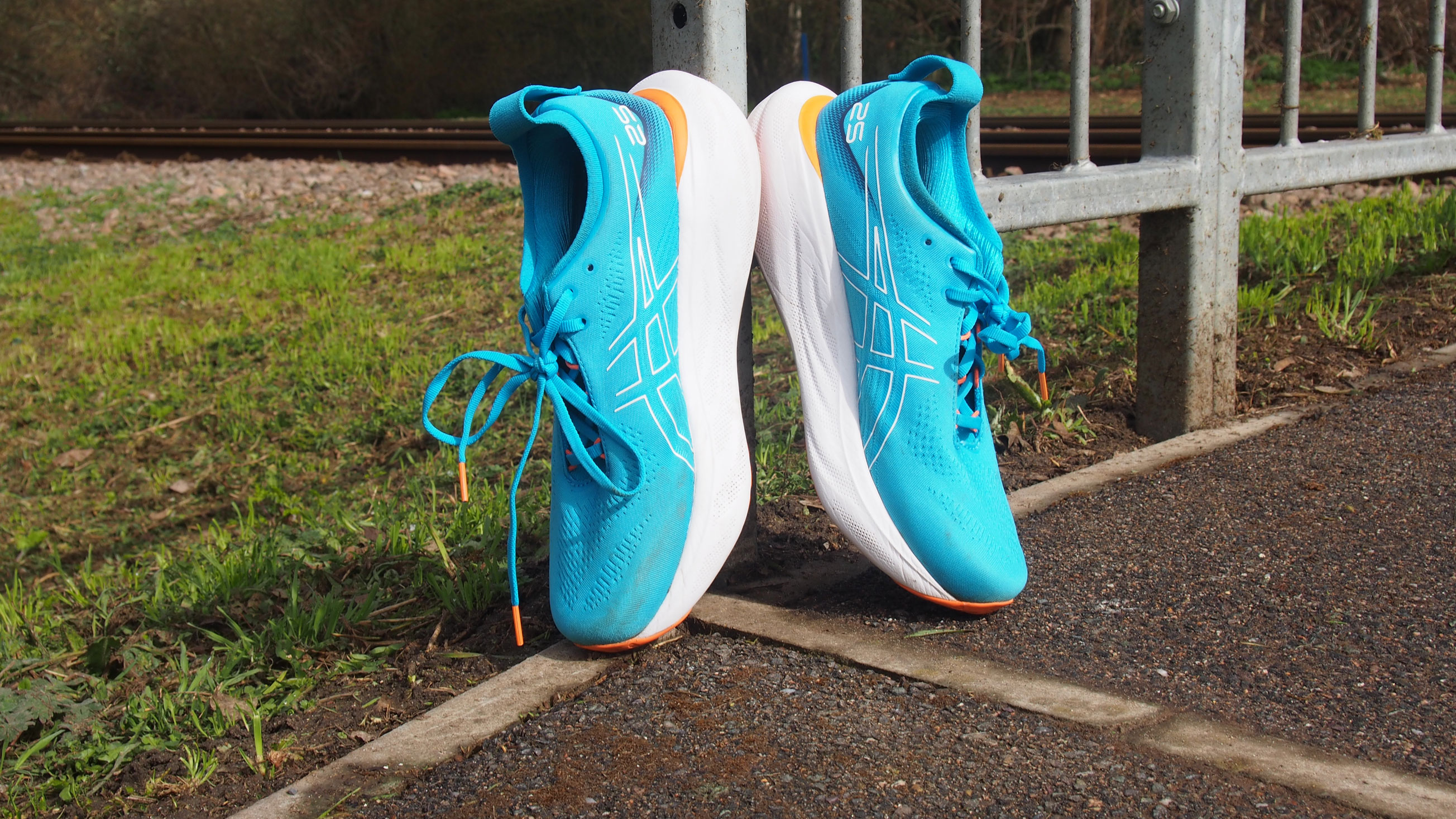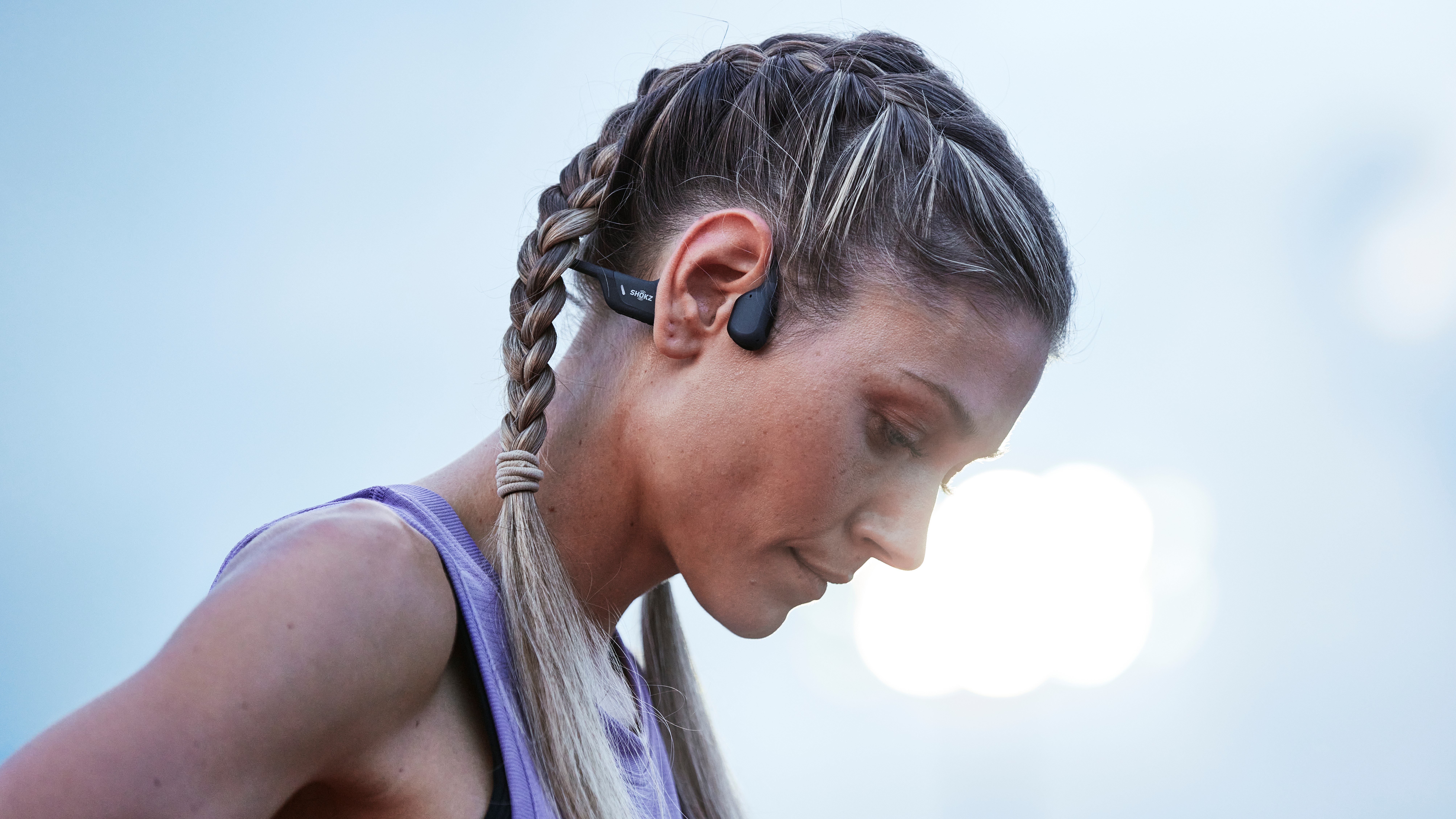I'm a fitness editor, and here's all the gear I'm using to run my next marathon
All the gear I’m using to run my next race

Sign up for breaking news, reviews, opinion, top tech deals, and more.
You are now subscribed
Your newsletter sign-up was successful
At the time of writing, it’s just over nine weeks until the London Marathon, which I’m running. It’s my second marathon, and it's a big one: the London Marathon is a much-coveted race for runners all over the world. It’s one of the World Marathon Majors, along with New York, Boston, Berlin, Tokyo, and Chicago, and a bucket-list item to tick off.
Of course, running a marathon requires a lot of things, like lots of food, a healthy dash of crazy, and a tolerance for the sickly-sweet taste of energy gels. But to train and race effectively, you need a little bit of technology these days, too. Here’s what I'll be using in my capacity as TechRadar’s fitness editor, from the best running watches to the best running shoes.
The watch

The watch I’ll be using, and have been using throughout my training so far, is the Garmin Epix Pro. I dabbled with the Apple Watch Ultra 2, but the battery life and my love of using an Android phone keep pulling me away from doing so. As a daily training tool, the Garmin Epix Pro is hard to beat, and I’m using its navigation tools pretty extensively during my long runs.
Creating a course in Garmin Connect, syncing it to my watch, and following the full-color GPS map, which alerts me when and where I’m supposed to turn, removes a lot of guesswork from my long runs. I don’t run too short or long unintentionally, and even when I’m jogging through unfamiliar parts of London, I know I’m on the right track.
By not slowing down to get my bearings and calculate where I’m supposed to be going, I can concentrate on the important thing: my training. Combined with music controls, a two-week battery life, advanced running and recovery metrics, a bright AMOLED screen, and an LED light, which I use during night runs, it’s a wonderful piece of training tech.
However, it is too much watch for me, with many advanced topography and navigation features going unused. I’m also using TechRadar’s review sample, so don’t think you have to spend nearly $1,000 / £900 / AU$1,600 on a watch to run a marathon.
If I had to buy one, I would probably opt for the more affordable Forerunner 265, which I used during my first marathon last year. It has almost all of the above tools (other than the light and a few advanced fitness metrics) and is practically half the price of the Epix Pro. It’s a bit slimmer, too, so you could feasibly wear it under a dress shirt.
Sign up for breaking news, reviews, opinion, top tech deals, and more.
The shoes

Last year, I went big and opted for the Nike Air Zoom Alphafly Next% 2 – a carbon-plated race-day shoe used by elite athletes – because I could. However, my marathon time (4:04 and change) wasn’t anywhere near elite, and I felt faintly ridiculous wearing these shoes. I was worried I looked like one of those “all the gear, no idea” sort of people and had no place wearing an overdesigned shoe that wouldn’t be out of place on Eliud Kipchoge's feet.
This year, I’ve scaled back a bit. I’ve been training in the ASICS Gel-Nimbus 25, a pair of shoes less ostentatiously designed with no carbon plating that instead revel in comfort. They're tailor-made for long training runs. They’re nice and squishy and very comfortable, even during the 20-kilometer long runs I’ve done so far. For race day, I’ll be wearing their successor, the well-reviewed ASICS Gel-Nimbus 26.
The Gel Nimbus 26 is similar to the 25, with the same FF Blast cushioning but a re-engineered upper and a change to the materials that gives a slightly firmer, faster ride while retaining a lot of comfort. I’m still not going for a particularly elite time (although I’m aiming for under four hours, so a tad faster than my first effort), so it’s nice to have a shoe that'll keep my feet comfortable without sacrificing too much speed.
The headphones

Wearing headphones is slightly controversial among marathon runners. Some swear by them, with the music often the only thing keeping them going when the roar of the crowd drops away. Others eschew headphones entirely. Some events even ban them, with only bone-conduction or open-ear headsets permitted.
I like running with headphones. The London Marathon is a very crowded course, with few quiet sections, so there seems little need for headphones on the surface. However, I’ve been training with audiobooks and music, as well as pacing reminders every kilometer, and it’ll be nice to have the same tools available to me as I run. With that in mind, I’ve gone for the Shokz OpenRun, a set of the best bone-conduction headphones.
Shokz OpenRun are great and fairly cheap now. They leave your ears free, are comfortable on the ears, and are very durable, with an IP67 rating. They charge fast, last a while, and sound good, even if the transducers are a tiny bit tinny. I’ll have these on a lower-volume setting, so when the noise of the crowd drops out in places, my playlist can step in and keep my energy up as I cross the finish line.
Food and drink
On my long training runs, I've been using this cheap Fistcale running backpack with a water bag and flexible straw, but I won't be wearing it on the day. The London Marathon course has a lot of support, so I'll be using the many water stations around the course to stay hydrated.
For fuel, I will be taking Science in Sport energy gels with me, "eating" one at the starting line and another every 45 minutes of running. I should only need six to get me through four hours of running, but just in case, I'll bring seven or eight.
You might also like...

Matt is TechRadar's expert on all things fitness, wellness and wearable tech.
A former staffer at Men's Health, he holds a Master's Degree in journalism from Cardiff and has written for brands like Runner's World, Women's Health, Men's Fitness, LiveScience and Fit&Well on everything fitness tech, exercise, nutrition and mental wellbeing.
Matt's a keen runner, ex-kickboxer, not averse to the odd yoga flow, and insists everyone should stretch every morning. When he’s not training or writing about health and fitness, he can be found reading doorstop-thick fantasy books with lots of fictional maps in them.